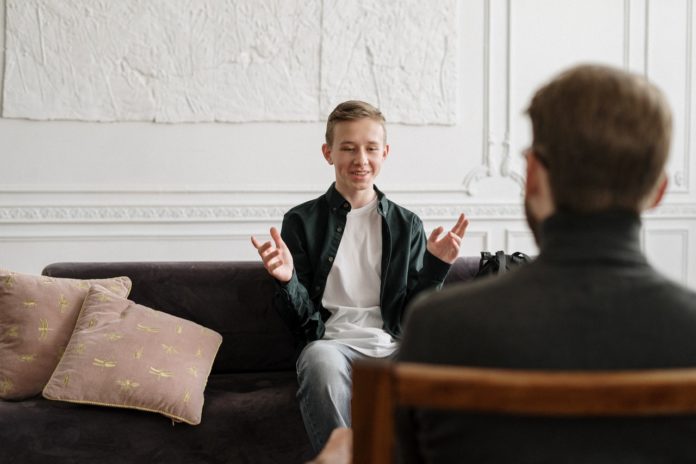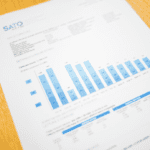Psychosocial and behavioral difficulties may affect students’ academic performance, and school counseling addresses those issues. School counselors provide counseling at schools.
Students’ success is the school counselor’s responsibility, as they promote equity and access for all. Counselors play a vital role in creating a positive learning environment for all students. The goal is to help every student achieve academic achievement, learn how to manage emotions, interact with others, and make plans for the future (postsecondary education, military service, and workforce).
What is The Role of the School Counselor?
The following elements of school counseling can be summarised according to a 2020 study, regardless of the title or role of the school counselor:
- Educating students psychologically, academically, and socially
- Conflict resolution between all parties involved
- Supporting students in their personal struggles
- Student, parent, teacher, and principal consultations
- Organizing school events
Counselors are responsible for students’ academic, emotional, and social development. The profession of school counseling is defined in three categories: manage, deliver, and access. School counselors use these standards to improve student outcomes in developing, implementing, and evaluating their school counseling programs.
What are the Different Roles of a School Counselor?
Depending on the needs of each student, school counselors often take on various roles to achieve the best results. Educator, expert, advocate, mediator, mentor, navigator, mediator, negotiator, observer, specialist, researcher, counselor, and educator; are just a few of this multifunction position’s roles.
Let’s take a closer look at a few of them.
1. Consultant
School counselors are responsible for working with school staff, assisting with school organization, and facilitating teaching and learning. Utilizing data and student needs, they must develop and deliver an effective counseling program.
In several countries, school counseling aims to improve how the school, its teachers, and its work function.
2. Counselor
A school counselor’s primary responsibility is to assist students in their academic and career pursuits. Students can identify their abilities, capacities, and interests through their assistance, preventing them from dropping out.
Counselors may also serve as career coordinators who advise students on career orientation and choices. They may also be able to support students in their college admissions preparation in this manner.
3. Psychologist
These professionals are heavily involved in mental health care. School counselors sometimes conduct counseling sessions in the capacity of school psychologists. These counselors may need to address situations of bullying or trauma among students.
4. Mediator
There may be many tricky situations confronting a student in a school setting, and a counselor may play the role of an advocate by guiding and negotiating. For instance, when students feel that their teacher is unfairly treating them.
Counselors may also serve as mediators between students who have just engaged in violent behavior. By teaching social skills lessons and counseling, school counselors may prevent a host of undesirable situations.
5. Friend
School counselors’ primary role is to assist students with their personal growth and learning.
A student can benefit from the counsel of a school counselor in a professional capacity when all they need is a friend. Confidentiality and privacy are a part of this professional relationship.
Counselors may also take on the roles of mentors, supporters, advisors, listeners, and believers just like friends.
6. Social skills teacher
Counselors often function as researchers, specialists, experts, leaders, and consultants when teaching social skills.
They must first find an appropriate social skills program that suits the school’s demographics, then deliver the content and assist the teachers with implementing it.
7. Disciplinarian
Students who misbehave might approach the counselor as their point of contact in some schools. Whenever a teacher dismisses a student from class, the student will be asked to speak to the school counselor about his or her behavior. After it, the counselor may decide to consult the administrators about the next steps.
When communicating with students and parents, counselors may also need to address attendance issues.
8. Teacher
In addition to counselors in the classroom, there are also school psychologists. Assisting teachers, consulting on social skills, or delivering a lesson on emotional learning is part of their responsibilities.
The school counselor should also develop and conduct engaging classes while maintaining excellent classroom management techniques, similar to how the classroom teacher prepares lessons. Counselors can adjust the content or teaching during and after the lesson by assessing students’ knowledge formatively.
Conclusion
By connecting school counseling to the school improvement plan and academic mission, school counselors facilitate equity and access for all students. Those students enrolled in the school counseling program receive academic/career development, social/emotional support, and guidance from school counselors.
They provide developmentally appropriate activities and services directly to students or indirectly through their interactions with others. Students learn the mindset and attitude they need to succeed academically, attend classes regularly, and maintain discipline through these programs and activities.
















